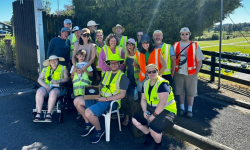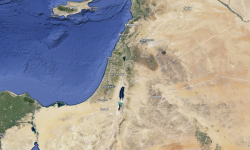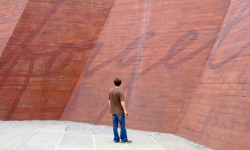
A friend of mine recently wrote a Facebook post something like “I’ve been watching the Netflix show Unorthodox and it makes me glad that I was raised as a Muslim.”
If you don’t know anything about the show, from my viewing of its first two gripping episodes, I can tell you that it is about the voluntary exit of a young woman from an extremely orthodox Jewish community (Hasidic) in New York. So far, I’ve seen flashbacks of her pious and limited upbringing; it was limited socially, educationally, and technologically, for the purpose of maintaining purity. Purity as determined by strictly following every one of the edicts in the Torah (the books of law – the first 5 books of the Bible). The woman leaves the community not because she was mistreated, but because she felt that “God demanded too much of me.” The community reacts by attempting to retrieve her, even while her immediate family refuses to talk to her on a phone call.
Around the same time, I received a Bible Society newsletter, which was describing why audio bibles should be funded for Algeria. Apparently, in this Muslim country, women are treated as minors throughout their entire life – so they are forced to obey their brothers, father or husband, with no state protection. Generally, they are left illiterate, and live their lives labouring for their families.
It is very easy to point the finger, and notice where another religion or way of life has limited women – but not notice where the same thing has happened in our own religion or way of life.
I initially thought of responding to my friend by highlighting the irony in her comment: in many Muslim countries it would be impossible for the woman to even exit her oppressive community, because it extends to the entire country. I decided promptly that this comment would be too aggressive. Then I thought that maybe I should just make a comment about how every religion has fundamentalists or extremists, and the rest of the religion should not be judged by those. But then I reflected that even moderates can be adversely affected by their own or other people’s understanding of their religion.
It is particularly stinging when we realise it is our very own scriptures that are causing people to stumble. Yes, we can argue that the scriptures are being misinterpreted. But whose interpretation or interpretive method is the right one, or even (if that goal is too lofty) the best that we can currently access? And is it worth the effort, when we know that there are vast numbers of women living in limited ways, apparently content to give over their decision-making responsibilities to men?
It may only be when women themselves need to protect or care for themselves or their children, when their menfolk are not doing so (perhaps because they are dead or incompetent or doing the harming) that they may, with a little help, finally wake up to how they also are made in the image of God. That they too have a right and a responsibility to live life well and fulfil their role of managing the earth (Gen 1:26-27).
I think my best response to my friend is: thank God that you, like the young woman in Unorthodox, were raised to believe that you have intrinsic worth, and that you had the means, ability and hope to build your own life. May we all, who have likewise, reach out and help those who don’t – whether it is by counselling, financing, purchasing wisely, teaching, protesting, or whatever! This too is part of our sacred responsibilities.
Love the Lord your God with all your heart and with all your soul and with all your strength and with all your mind and love your neighbour as yourself. (Luke 10:27)


